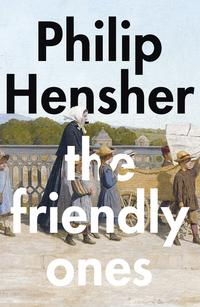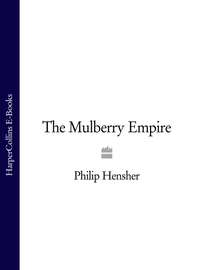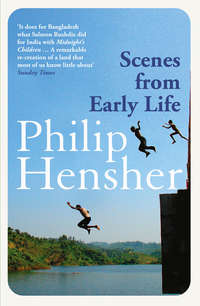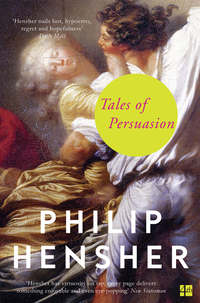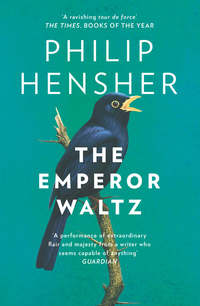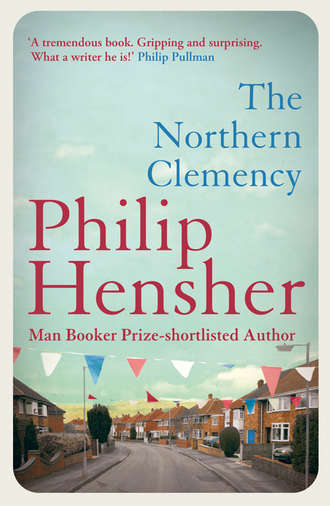
Полная версия
The Northern Clemency
He drove off, face burning, and when, after breakfast, a charity shop presented itself with, in the window, a rigid array of donated vases, there was only one thing he could do. He went in and bought the lot. At least I can, he thought, driving away with the hideous clanking load in the back, at least I can – but reassurance wouldn’t come. It would not come, either, when he arrived back in Broomhill and and, in front of all the builders, he had to unload seven unbelievably ugly vases. They had done a good job, the builders, in producing an elegant interior for his shop; they had to see how ugly these vases were. But they said nothing.
It was to this state of concentrated hopelessness that Katherine presented herself. Until then he hadn’t thought of taking on an assistant but, of course, shops had them. It was easy for him to understand why he’d taken her on: she had come through the door and, immediately, reassuringly, he had seen someone who was projecting an idea of herself with even less competence than Nick did. She seemed to take him at his word, swallowing brothers in New York. He felt himself growing bigger in her eyes. He didn’t despise her for it – in fact, he rather liked the way her presence made him feel about himself. He liked, even, the way she said ‘Nick’ to him, saving herself up, then using his name, enjoying it.
It seemed a good idea. It was a very good idea and, surprisingly, Jimmy agreed. ‘Why not?’ he said. ‘Don’t let her near the books, that’s all.’
From then on, things improved. Three weeks after the shop’s opening, when he looked out of the window and saw two figures opposite, observing his front of a business, he felt only a small shudder of alarm, which subsided immediately as he saw they were two young girls.
Katherine said, ‘It’s my daughter. And her friend.’
‘Ask them in,’ Nick said. It was going to be all right.
It was a Sunday morning, a month or two after Katherine had started her new job, when Jane’s father put down the Sunday Express and said, ‘We ought to go out somewhere.’
Jane had been looking forward to the Sunday Express. There was the Foreign News page, a page she always enjoyed, with the story about the man coming back early and disturbing his wife with her lover in an unusual hiding-place – the names and the nation changed from week to week but the story was the same. She’d been looking forward to a boring Sunday, maybe a bike ride down the crags.
‘Go out where?’ her mother said.
‘It’s a nice day,’ Malcolm said. ‘We could go out somewhere after lunch.’
‘We never go out somewhere after lunch,’ Daniel said. He was sitting on the piano stool, one sock off, picking at his feet, absorbed as a grooming monkey. ‘On a Sunday. Mrs Kilwhinney, right, she said to us, “Do you ever go out into Derbyshire with your family, on a Sunday?” and only this one kid, this right spastic, said he did. But no one else.’
‘I don’t quite understand the point you’re trying to make,’ Malcolm said, with the heavy irony he sometimes used in Daniel’s direction. ‘But this afternoon, this family is going to get in the car and go for a drive in Derbyshire. Is that understood? And have a nice time. All right?’
Malcolm got up from the breakfast table and, without exactly storming, walked emphatically out of the room and upstairs; he often retreated to the study and his military books at moments of stress.
‘What was that?’ Daniel said.
‘It’s you that’s supposed to have tantrums and slam doors,’ Jane said, neatly swiping the Sunday Express. ‘The problems of adolescence in the young male.’
‘You read too much,’ Katherine said mildly. ‘It’s nothing unusual. Your father wants to go for a drive in Derbyshire. I don’t know why that’s so strange. Lots of people do it.’
‘It’s strange for us,’ Jane said. ‘We only do it when Nana comes.’
‘Well, perhaps it would be a good thing if we started doing it,’ Katherine said. ‘There’s some of the most beautiful country in England out there, and we look at it once in a blue moon. I don’t see that it’s “spastic”, Daniel, and I’ve asked you once—’
‘Okay, okay,’ Daniel said, and put his sock back on.
‘It’s disgusting,’ Katherine said. ‘But the other day, Nick, at work, he mentioned he’d been to Haddon Hall at the weekend, this would have been last weekend, and he was saying to me how beautiful it was. Well, I was really quite embarrassed to have to admit that even though I’ve lived forty years in Sheffield, not fifteen miles from Haddon Hall, I’ve never been there. Of course, Nick, he’s interested in beautiful things, he’s sensitive to them – a florist, it’s to be expected. But don’t you think it’s terrible that we live here and we never bother to go and enjoy all the beautiful things on our doorstep, and someone who’s only lived here for three months, he’s making so much more of an effort?’
‘We went to Haddon Hall.’ Tim sounded aggrieved. ‘Martin Jones was sick in the coach into a bag and Miss Taylor threw it out of the door of the coach without it stopping. I told you we went. You never listen.’
‘Well, it was only an example,’ Katherine said. ‘Of course I remember you going.’
‘It was boring. I don’t think I like beautiful things.’ Then Tim thought hard for a moment, and said, ‘Haddon Hall, more glass than wall.’
‘That’s Hardwick Hall,’ Jane said. ‘You’re mixing up beautiful things.’
‘No, it was Haddon Hall,’ Tim said, in a kindly, regretful tone. ‘Hardwick Hall we didn’t go to. I did a project about it, though. I got seven out of ten and I drew pictures. Oh.’
‘It was Hardwick Hall, wasn’t it?’ Jane said. ‘That’s got more glass than wall?’
‘I don’t care which one it was,’ Tim said. ‘It might be both of them probably.’
‘The point is,’ Katherine said, her voice lowered and slow, she might have been passing on a moral lesson, ‘don’t you think it would be nice if someone, Nick for instance, Mr Reynolds, said to me on a Monday morning, “What did you get up to at the weekend?” And I could say – or it could be your teacher, it could be anyone – instead of “Not much,” or “Mucked about”, or “Washed some socks,” I could say, “We had a lovely day out in Derbyshire. We went to see, I don’t know what, and it was really beautiful”? Don’t you think that might be nice? I’d really like, once in a while, to say something like that to Nick.’
Jane concentrated on the newspaper, as if she weren’t listening. She thought of her father’s outing, a suggestion out of nowhere; she listened to her mother, lovingly speculating on how she could describe a Sunday afternoon to Nick, the sort of person she could become for his sake. She had never gone on so much about beauty; you could hear the rhythm of her voice changing, as if some contagion had taken hold of it. She doesn’t understand anything, she said to herself.
‘Well,’ Daniel said, ‘you could always say it. It wouldn’t have to be true. And then we could have the best of both worlds. We could muck about and you could still say that you’d been somewhere posh and it was beautiful. But you wouldn’t actually have to go there.’
‘That,’ Katherine said, ‘is exactly the sort of thing I would expect someone of your age to say.’
‘How hilarious,’ Jane said, looking up from the paper and its breathless foreign adulteries, its lovers safely absurd, in faraway cupboards. How hilarious: she meant it to wound. But the outing happened.
After lunch, Malcolm said, ‘Can you be ready in ten minutes? I want to be off soon.’
‘Just let me do the washing-up,’ Katherine said.
‘Leave it,’ Malcolm said. ‘I want to be off, or it’ll be getting dark.’
‘It’ll only take ten minutes,’ Katherine said. ‘I’m not leaving the washing-up to fester.’ And in fifteen minutes they were in the car.
Sheffield fell away from you so quickly, and the gardens joined, broke up, grew and became moorland. There was a garden centre right at the edge, the very last thing of the city, or the first, and Jane had always found something funny about that: it wasn’t the sort of thing you could ever say to anyone, or even properly explain, but it was something to do with all that green, rooted life out there, going on without anyone doing anything, and then it got into the garden centre and people sort of then thought it was all right, one of those green things, to pay money for it and put it in their gardens, even though – Jane wished she could explain this thought properly. She just knew there was something funny about the garden centre being at the border of the city, like Passport Control for plants. Ah well. She loved the country, even those walking-distance views and landmarks she had to concentrate to see.
But Jane’s pleasure was being ruined by the noises and silences in the car. Her father’s concentration on the road had a different quality of silence to it, compared to Tim’s dense, bewildered concentration, or the quiet amusement Daniel was extracting from the situation. She wondered what her own pained silence sounded like from outside – perhaps very much like sulking. She looked out for the real boundary, a circular grinding stone turned upright and labelled ‘Peak District National Park,’ although no wildness began there. She looked forward to the moment that the car laboured whinnyingly upwards, crested the brow of the hill, and there before them, expected in advance and announced on its appearance, was the Surprise View, a valley opening up idyllically; the only surprise, ever, was if the weather had cleared or condensed on that side of the hill, and they came out of or into low-lying cloud, the view revealing itself or a dense white obscurity descending on the car. The weather today was clear; piles of clouds, seeming less vast than the purple expanse of the moors.
‘I thought we’d go to Chatsworth,’ her dad said, a recognized outing. That was all he said, hardly waiting or seeming to expect any response or excited agreement. But all the way her mother kept up a running commentary, and the texture of it was by now familiar, unvarying. She offered one posh superlative to the landscape after another, comments not exactly hers. And she could not keep off the subject of Nick. They might have been driving through the native country of someone dear to them, a figure of historical renown, and she, speculatively, saying what this meant or might be supposed to mean to Nick; Nick; Nick.
Jane sat there, trying not to listen. No one interrupted. And her father? Well, perhaps he was letting her off the leash in giving her excited voice its indulgence, as if to let her hear herself and shame her out of what, for weeks now, she had been unable to stop saying.
In half an hour, they were through a further gated border, and inside the huge estates of the duke. Just outside was a village, a peculiarly picturesque river running through it and, conspicuously, a pub of some pretensions. Nick had been there; he said the food was exceptional, to match anything one might find in London. Jane thought it was a servile, ugly village, ugly with flowerbeds. Once through the gates the quality of the country changed, not to lawn, exactly, but to well-tended grazing land, prettily organized copses and views. The sheep were whiter, the grazing cows like an illustration on a can of evaporated milk, the river, of a glassy clarity, wending its elegantly serpentine way between trimmed banks. Nick thought it one of the most beautifully landscaped estates in the country, if not the world; he had been knocked out by the beauty of Chatsworth, and liked often to come over here. Perhaps even today.
It was not that she disagreed with it, though the estate had a colossal smooth elegance that was not, Jane thought, exactly right here in the north; it was calculated as precisely as that estate village in orange brick. She thought the whole thing beautiful too, and was pained by how Nick’s views, filtered through her mother’s mesmerized infatuation, spurred her on to indignant silent disagreement. She wanted, rather, a kind of beauty that required no one to say, ‘How beautiful,’ and that, she was convinced, was what Chatsworth had: it spoke to the sort of mind that regarded the epithets of beauty and loveliness with shy scorn. And, most of all, there was the great house, rushing now into view: the encrusted palace, the dense magic of its gardens and beyond, a landing-strip of water with a single fierce jet, forty feet high. Seen from the far side of the house, it flung a firm trunk of water upwards, and at the top the mild wind seemed to carry it away like a willow’s foliage.
If Derbyshire had failed, Chatsworth did the trick. Katherine’s conversation dribbled to a halt, her gesturing hands froze in mid-air, then fell to her lap. Her head, which had been turning from her husband to her children in the back, now turned to the great house. Malcolm’s head and shoulders seemed to relax, his eyes no longer flickering tensely in and out of the rear mirror. They drove into the car park, gravel splashing under the tyres, chickens, exuberant as a flowering bush, scattering. He bought a parking ticket through the window. They all got out; locked the doors.
‘You know,’ her dad said, in his mildest voice, ‘that village in the park? Edensor, it’s called, spelt E-D-E-N, there’s an interesting story about that. One of the dukes, a hundred years ago, he wanted to build a model village on the estate for his high-class workers, as you’d call them, the important people, like the chief housekeeper, maybe, the gamekeeper or the head gardener, so he asked an architect to come up with plans for the houses, and the architect, he was nervous and produced a range of ideas, different houses, so that the duke could choose the style he wanted and then they could go with that one. But whether the duke didn’t understand –’ they were walking now into the main hall of the palace, stout ladies sitting under a fat, gaudy allegory on the ceiling ‘– or whether he liked them all about the same, he just said, “I’ll have those, all of them,” and so every house in the village, it’s in a different style. Two adults and three children, please. Of course, I’m not myself all that interested in the house, it’s the garden I like best, but you children, it’ll be interesting for you to see the house, you’ll enjoy it.’
They’d been into the house on school trips and on a family outing – years ago, when Nana Glover was still alive. But they drove through the park regularly, on their twice-yearly trips through Derbyshire, and every time Malcolm pointed out the village, and explained the facts of it. Jane found it comforting, like that longer story about the village of Eyam, the only place, apart from London, where the plague had broken out. She didn’t mind being told things more than once: it was a signal that everything was all right in the world. But a moment after they had begun to climb the stairs to the main rooms, her mother started again, her bright eyes glossing over the spectacle of the house and examining the other visitors, waiting for Nick to appear at any moment and, in the meantime, giving her family the sort of comments he might be expected to produce or perhaps already had. She had dropped his name, but there was nothing of her in what she was saying, and she kept it up through those many golden rooms, explaining them, their views, their historical associations, their – now painful word – beauty to her silent family. At last it was done, sculpture gallery, Mary Queen of Scots rooms and all.
‘Shall we go and have a look at the gardens?’ Katherine said, flushed with pleasure.
Outside on the gravel path, the others said nothing. To the right there were the elaborate gardens, their games and winding path, and the vast single jet; to the left, the car park and the toilets.
‘It’s getting a bit late,’ Malcolm said. ‘It’ll be dark before long. Maybe we’ll save the gardens for another day. We’ve had a nice time, though, haven’t we?’
It came out more plaintive than you’d have expected, and though Daniel said, ‘Lovely,’ and Tim said, ‘Yes,’ his voice rising into a question, Jane put herself into it, for her father’s sake, and said, ‘I’ve really enjoyed it. I wish we did it all the time.’
‘I thought you were looking forward most to the garden,’ her mother said.
‘Well, I was,’ Malcolm said. ‘But we’d better get off. I just want to go to the toilet.’
‘Can’t it wait until we’re home?’ Katherine said – and whether she now thought it was common to piss on the porcelain of Chatsworth, a thing Nick would never presume to do, or whether she imagined the dukes and their sons, the little lords, drove to Edensor for that purpose, or whether she just didn’t want to think about anything so low, nobody could tell.
‘I want to go to the toilet,’ Malcolm said, voice rising in something like anger, and two passing ladies, posh in pearls and dung-coloured sweaters, burst heartlessly into laughter. ‘Well, I do,’ Malcolm said childishly, kicking the gravel.
‘Go on, then,’ Katherine said, and with one last look at the posh ladies, retreating up the gravel path towards the formal gardens, he did so, plucking at his anorak.
‘You know something,’ Daniel said, when they were half-way home, ‘I need to go to the toilet. I wish I’d gone.’ And Jane’s dad – she enjoyed these witty streaks in his character – slowed to the edge of the speed limit, and maintained thirty miles an hour, ignoring Daniel’s complaints and the line of drivers behind them.
After that there was no more talk of anyone having a lover. Jane wondered how her mother could be so blind, so deaf: deaf to what she sounded like, blind to the protective shapes her father started to form whenever her conversation took a familiar turn. Anne might have mentioned it once, after that outing to Broomhill, but it was clear to Jane that she hadn’t got the force of the situation across, and Anne made her references to the lover in so amused a tone that the discussion couldn’t go anywhere; it could only become a joke, like Miss Barker’s impact on the continent of Africa. Nor were there any more Sunday outings.
At first Jane felt that she would never get on with her mother’s conversation, the way you waited for Nick to enter it at any moment, but time wore down anything. Soon it was the same as Tim’s dreaming evocation of snakes, his paragraphs of detail and longing, and they divided the long evenings between them like a pair of madmen supervising the silent sane. That might have been harmless, and there was no chance of it going beyond mad talk, Jane thought. It could never develop into a situation beyond easy horrid embarrassment.
But Jane was wrong, because after some months a suggestion surfaced and her mother had, apparently, decided to give a party, something never done before by the adults. There was no doubting the reason for this party. It was as if Tim had decided to hold a party to which the snake of his dreams would be invited. You could not say that, not to Daniel, not to Anne, not to anyone. Tell a teacher, was the advice in Jackie when things got bad for the correspondents of Cathy and Claire. But Jane thought of Miss Barker – and thought that Cathy and Claire didn’t know what they were talking about, and she went on thinking that until the night of the party, and the food was laid out to snare Nick, and her mother in a long blue dress, and the doorbell rang for the first time, and it was only Mrs Arbuthnot from over the road.
Perhaps even then it might have been all right. Tim and her dad were standing in the dining room, looking at but not touching the food. There were vol-au-vents, a dish of bright yellow cold chicken curry, decorative arrangements of cheese on sticks, and a whole Brie, cut open, oozing, but smelling strongly of ammonia. There were loaves of French bread, sliced into rounds and in baskets, and small bowls of pickle and bowls of butter, and on the sideboard, glasses set out in ranks with the bottles of white wine, Malcolm’s task, already open. There were bowls of crisps and nuts and, of course, in the middle of the table, and on the piano, and elsewhere in the house, in vases half theirs and half borrowed for the occasion, arrangements of flowers from Nick’s shop.
‘Are they going to eat all this?’ Tim said. ‘Have they had their dinner?’
‘They’ll eat it,’ Malcolm said. ‘Even if they’ve had their dinner. And I suppose if they don’t, we’ll be living off vol-au-vents and Coronation Chicken all week, you’ll see.’
‘How hilarious,’ Tim said. There was a silence.
‘What did you say?’ Malcolm said.
‘I only said it was hilarious,’ Tim said, faltering.
‘Did you say,’ Malcolm said, ‘“how hilarious”?’
Tim didn’t answer; he didn’t know what he had said or done wrong. But Malcolm left the room, with two bottles, his face set, and prepared to act like a host to whoever might come through his front door, to pretend they were welcome. Because that was what he had to do, just for tonight.
Mr Jolly, John Ball and Keith the boy had their routine worked out for an overnight stay and, under Mr Jolly’s direction, they reckoned to clear a good two hundred pounds a year on top of their wages. They worked together as a team. The routine was that you got money from petty cash for a bed-and-breakfast on overnight jobs, but of course you never used it. You slept in the van and kept the money. If they’d been sent out with just anyone, the routine wouldn’t have been possible. You’d have to explain each time, and word would get out, and they’d put a stop to it. As long as Mr Jolly had been with Orchard’s Removals, which was getting on for twenty years, they’d kept their teams fixed – maybe not for a day job, within London, but for overnights and more.
‘It’s that sort of consideration,’ a management wife had once said to John Ball at a works Christmas party, ‘that sets Orchard’s apart, and that’s why we never have any trouble with—’
‘Strikes?’ John Ball had said, and she’d blushed as at an obscenity from an over-familiar acquaintance. Yes, they liked to send you away with your team so, generally, Mr Jolly, John Ball and Keith could work their routine once or twice a week. Maybe everyone did; you didn’t ask.
Mr Jolly, the chief remover, had a kind of contempt for the management on account of this. Even while robbing it in this small way, he wasn’t grateful for the slackness. He’d have put a stop to it. They didn’t even ask for receipts, it being believed that the sort of establishments the men would use were not necessarily able to produce that sort of documentation. You just took the three quid each and signed for it. Later, on the way home, you divided it up; John Ball had three quid, Keith the boy thirty bob, and Mr Jolly took the rest. The firm’s accountant was called Perks, something which always made Mrs Jolly laugh as she took the cash, made a little roll of the notes and put it into the tea caddy on the shelf in their Streatham kitchen for a rainy day, the fifty pee over going straight into her pocket for a couple of glasses of mild for herself later.
‘Oi!’ Mr Jolly always said.
‘Oi yourself,’ Mrs Jolly always replied. He didn’t really mind. They’d managed to get to Majorca on the tea-caddy money last year.
But sometimes you wondered whether it wouldn’t be better to spend the money in the way it was meant, particularly in the summer. It was still quite warm now, at the beginning of September, even as far north as Sheffield. Mr Jolly had known worse than Keith – they weren’t especially smelly, the three of them. After a hard day’s work, you parked, went maybe to a pub for a pint or two and a bite of supper, then back to the van. The van itself was packed with someone’s furniture, beds, sofas and cushions, everything you could want for a nice restful night. That’s what Keith had said when he’d joined the team, complaining about the real sleeping arrangements. It had never occurred to Mr Jolly or (John Ball said, amazement in his voice) to John Ball. What an idea! It would be like – Mr Jolly said – it would be like a doctor treating, er, breaching – a lawyer suing a judge for – er – a thoroughgoing breach of – well, it wasn’t to be thought of, and, oddly, hadn’t been until Keith said it and then they all started thinking, hard, about those lovely soft beds in the back that they could arrange as they liked…
But they had their standards, so they went back to the van and made space for themselves in the cab and in the little loft arrangement over it with its porthole window, just about big enough for two with a blanket rolled up between you. Keith stretched out on the seats, complaining about Mr Jolly’s snoring and about the gear stick in his back all night. It didn’t seem so bad when you woke up, nice and warm and toasty often. Then you went off in search of a caff for breakfast and, ideally, a stand-up wash at a sink. When you came back and opened the cab door, phew! It was like something had died in there, and you left the doors open while you did the second half of the job.


